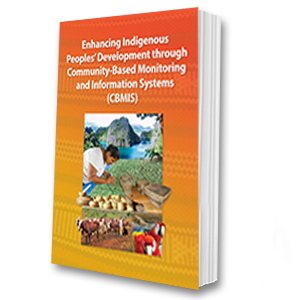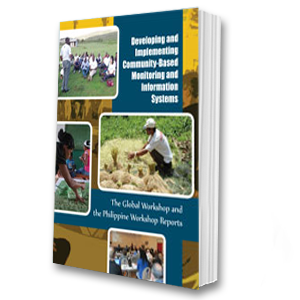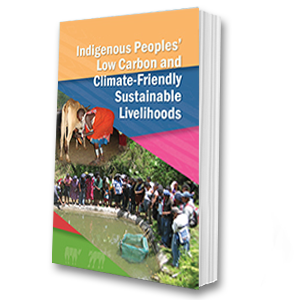CBMIS Publications and Manuals
Enhancing Indigenous Peoples' Development through CBMIS
CBMIS is not a new methodology or process. Indigenous peoples have traditionally and continuously been monitoring changes within their own ecosystems, resources, and other developments within their environment in the past until the present times. Indigenous peoples had always openly shared or reported to their communities any changes that they observed in their environment which, in turn, they also collectively analyze and make their own actions and decisions in response to such changes.
Basic Course on Community-Based Monitoring and Information Systems (CBMIS)
CBMIS is a process where indigenous peoples are able to generate information for the analysis, monitoring, and use of the community. It is geared towards community organizing, community empowerment and the realization of indigenous peoples’ sustainable, self-determined development.
Developing and Implementing CBMIS: The Global Workshop and the Philippine Workshop Reports
Reports of the Community-Based Monitoring and Information System Workshops. Global workshop was held on 26-28 April 2013 in Bonn, Germany and the Philippine workshop was on 25-27 February 2013 in Quezon City, Philippines.
Indigenous Peoples’ Low Carbon and Climate-Friendly Sustainable Livelihoods
Traditional livelihoods of indigenous peoples, which are proven to be sustainable over generations, are usually regarded as insignificant, obsolete, impractical and not financially gainful. These are not recognized as a distinct production force and system contributing to the overall economic well-being of local communities and the country, in general.
Contrary to claims, traditional livelihood systems of indigenous peoples are still very vibrantly practiced and contribute—not only to food security and subsistence—but to the overall well-being of their communities.




